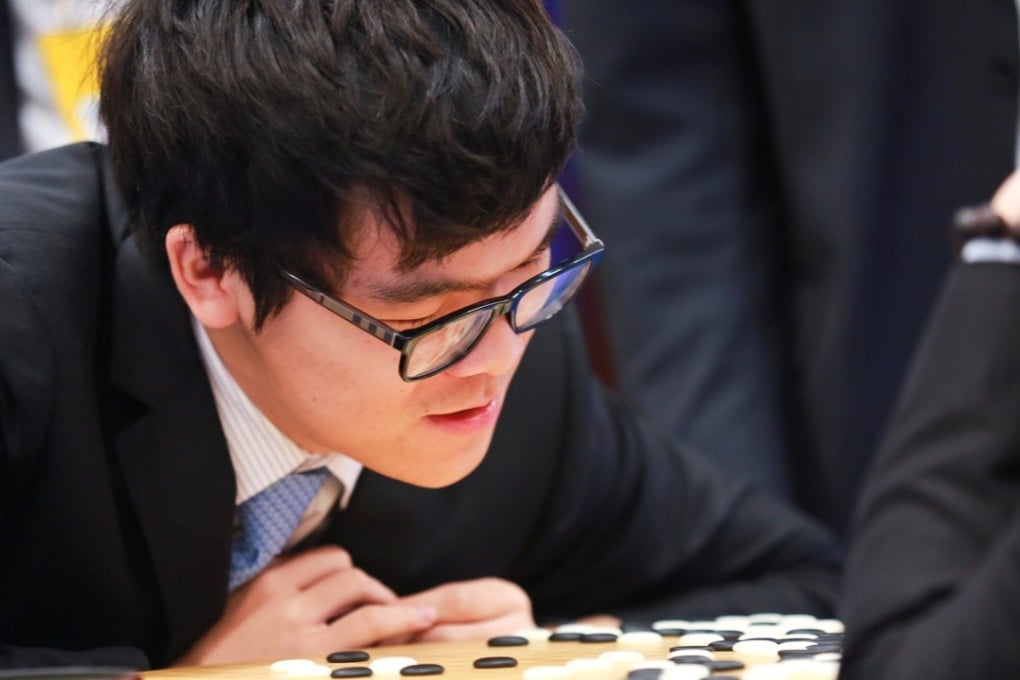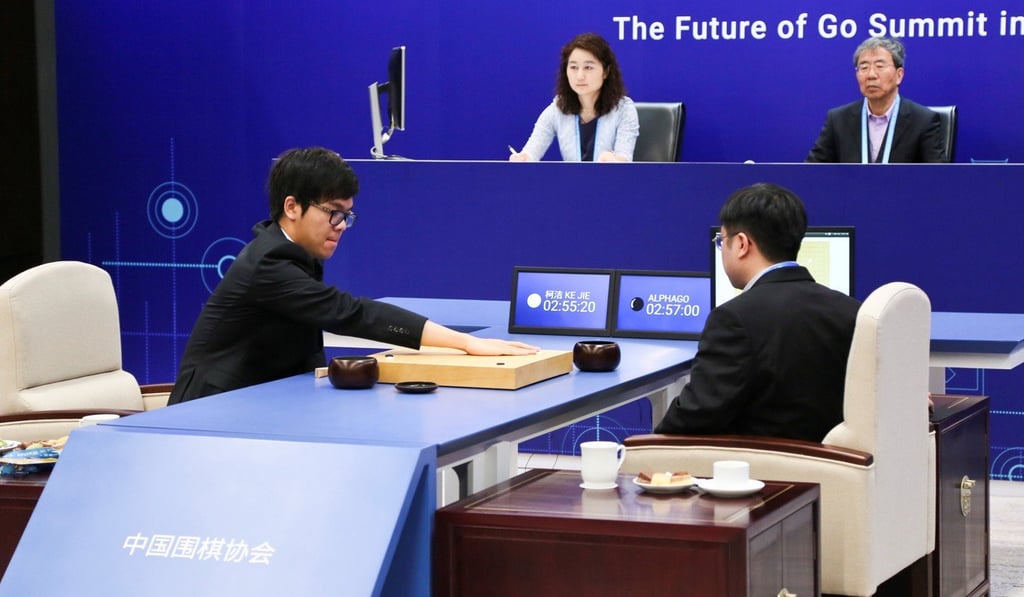AlphaGo wins second match in series of three with Chinese Go master
World No 1 player Ke Jie said to be ‘out of his league’ in competition considered a benchmark in measuring the encroachment by artificial intelligence on human endeavours

AlphaGo, the artificial intelligence programme developed by Google DeepMind, won the second of three planned matches with world No 1 player Ke Jie on Thursday, in what had been billed as the ultimate battle of wits between man and machine.
The match, which took much less time compared with the first game on Tuesday, suggests that AlphaGo has been improving its Go-playing skills ever since it stunned the world in 2016 by beating South Korean grand master Lee Sedol, the then reigning Go world champion, in a 4-1 match.
The 19-year-old Ke played well at the beginning and even successfully predicated several moves made by AlphaGo. But as the match continued, AlphaGo turned the situation around by handling Ke’s multi-angled assault and eventfully forcing him to resign.

“In the middle of the game, I thought I was very near to a win. But because I was too nervous, I later made some bad moves,” Ke said in the post match press conference.
AlphaGo dispatched Ke in 3.5 hours, an unexpectedly short period of time. The first game in competition lasted about 4.5 hours.
A planned third match between Ke and AlphaGo is slated for Saturday.